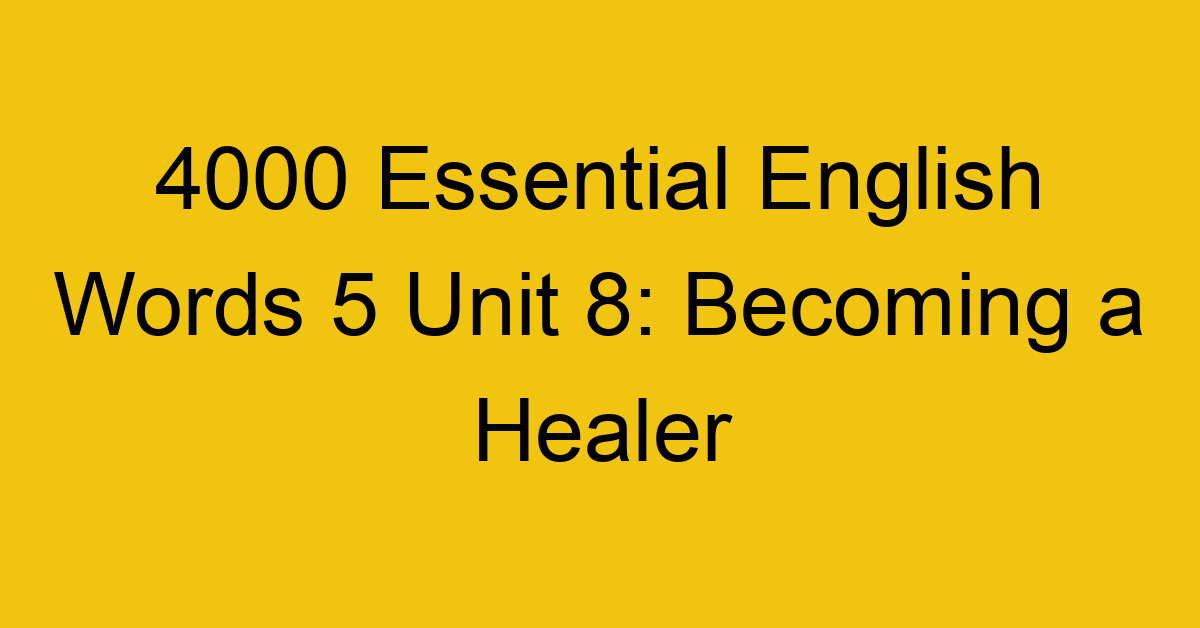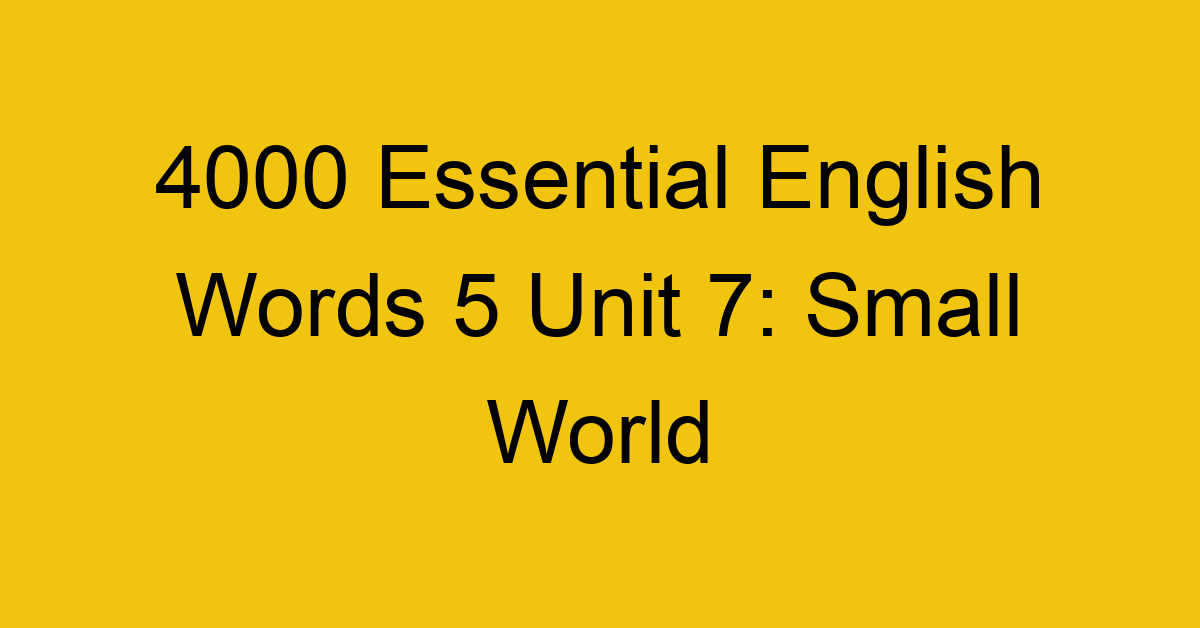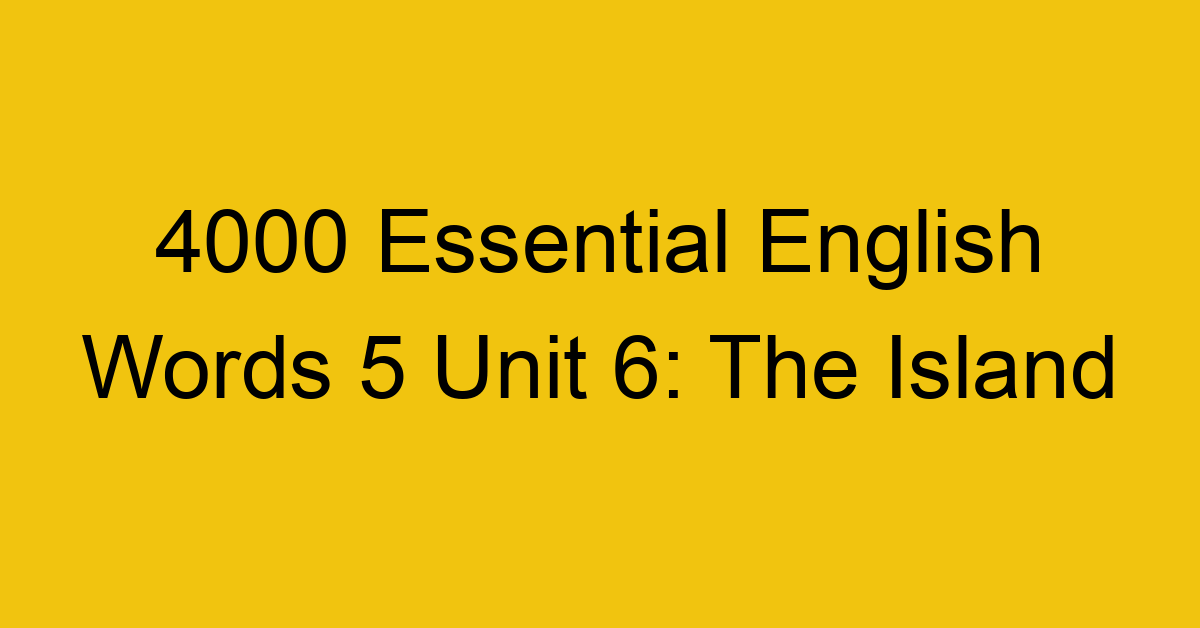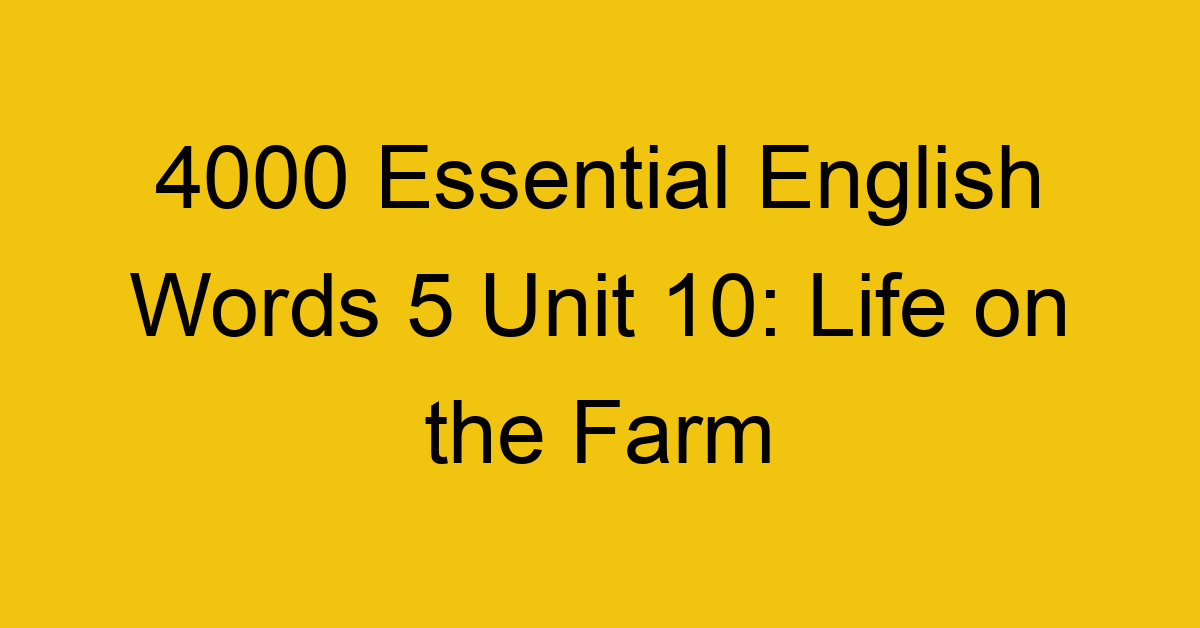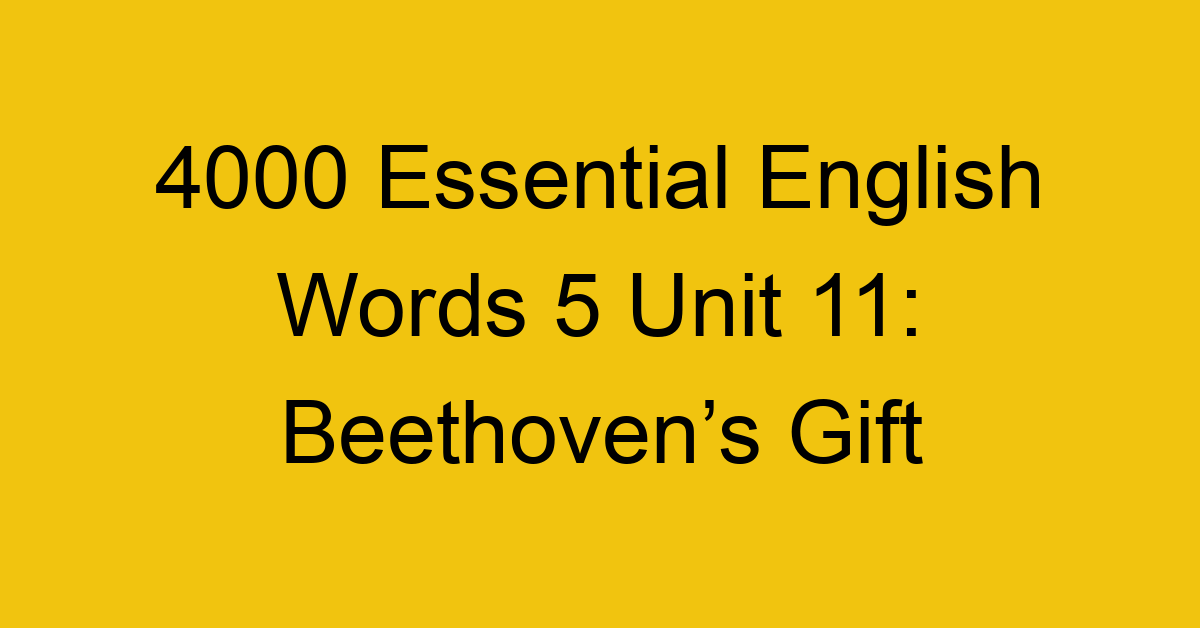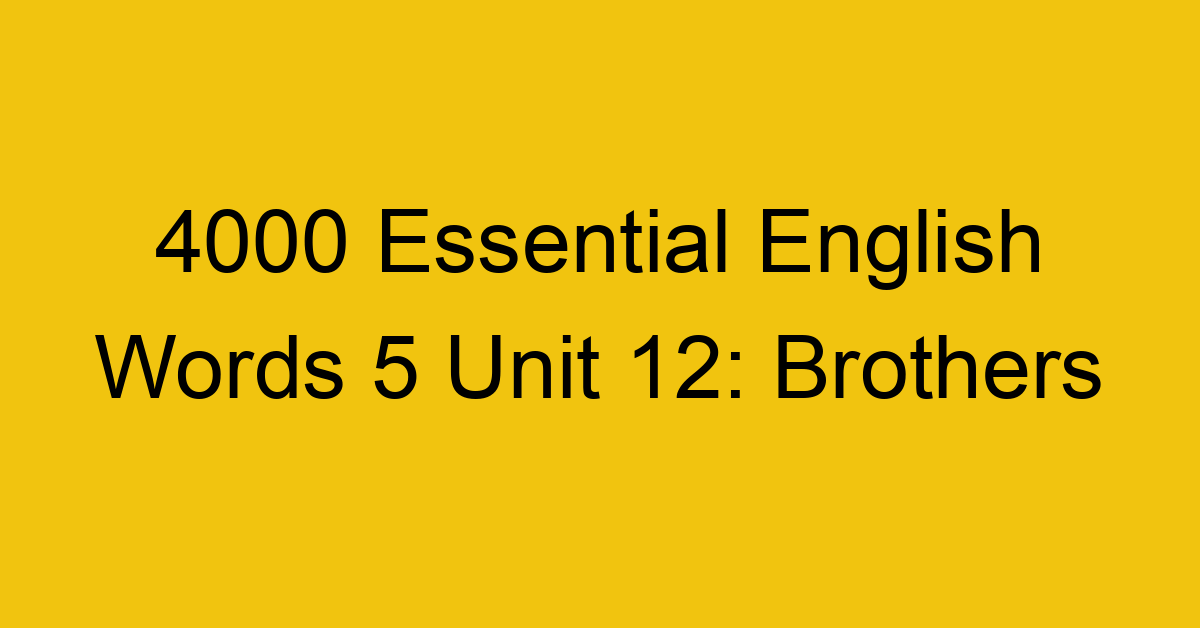4000 Essential English Words 5 Unit 9: The Weaving Machine
Word List
- archaic [ɑːrˈkeik] adj.
If something is archaic, it is very old or outdated.
→ To be competitive, we must update our archaic equipment.
- benevolent [bəˈnevələnt] adj.
If someone is benevolent, they are kind and generous.
→ My father was a benevolent man and gave lots of money to charity.
- brass [bræs] n.
Brass is a metal that is used to make musical instruments and ornaments.
→ Brass is used to make musical instruments like trumpets.
- capitalism [ˈkæpitəlizəm] n.
Capitalism is an economic system where private companies make goods for profit.
→ Most industries in the world today are based on capitalism.
- component [kəmˈpounənt] n.
A component is a part of a larger machine.
→ Computers have many different components, so they are complicated to build.
- dependence [diˈpendəns] n.
Dependence is a situation in which somebody relies on something else.
→ Young children have a dependence on their parents.
- diminish [dəˈminiʃ] v.
To diminish means to reduce or get smaller.
→ As the economy got worse, my savings diminished.
- drawback [ˈdrɔːbæk] n.
A drawback is a disadvantage.
→ The drawback of having a car is that it is very expensive to maintain.
- fad [fæd] n.
A fad is something that is popular for a short time.
→ The hula hoop was a fad for a few years, but it soon lost its popularity.
- impose [imˈpouz] v.
To impose means to interrupt or force your ideas on other people.
→ He imposes on his wife every morning by expecting her to make breakfast.
- managerial [ˌmænəˈdʒiəriəl] adj.
Managerial describes something related to a manager or management.
→ Nancy has a managerial position at the bank.
- medieval [mi:diˈiːvəl] adj.
If something is medieval, it comes from the period between 650 and 1500 CE.
→ We visited a castle that was built during medieval times.
- obsolete [ˈɒbsəliːt] adj.
If something is obsolete, it is not used anymore because something better exists.
→ Since computers became inexpensive, typewriters have become obsolete.
- peninsula [pəˈninsələ] n.
A peninsula is a large piece of land that is surrounded by the sea on three sides.
→ The state of Florida is an example of a peninsula.
- prestige [presˈtiːrdʒ] n.
If a person has prestige, people admire or respect them.
→ The young actress gained much prestige after she won an award.
- proportion [prəˈpɔːrʃən] n.
A proportion is an amount that shows the link between the parts and the whole.
→ Only a small proportion of the people in this town actually work here.
- radical [ˈrædikəl] adj.
If something is radical, it is very new or different.
→ The president is planning to make some radical changes to the law.
- refute [riˈfjuːt] v.
To refute something means to prove that it is false or incorrect.
→ The bank manager has refuted the claims that he lied to his customers.
- spectacular [spekˈtækjələr] adj.
If something is spectacular, it looks or sounds very impressive.
→ There was a spectacular fireworks display in the park at New Year.
- weave [wiːv] v.
To weave means to make cloth using horizontal and vertical threads.
→ We saw a woman weave a blanket on our vacation to South America.
